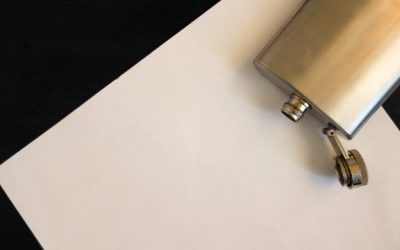I’m a moderate drinker now but in the past was a heavier drinker. While I was drinking a lot about 9 years ago I noticed that I would have a sneezing fit any time I had a few drinks. If I only had 1-2 drinks it would never hit, and once why do i sneeze when i drink alcohol it hit and I’d sneezed several times it would go away and I wouldn’t sneeze any more that night no matter how much I drank. This didn’t happen when I first started drinking; it was about 5 years later the first time I noticed it.
A personal or family history of asthma also increases your chances of developing an allergy. If the allergic reaction is more severe, people may require epinephrine, also known as an EpiPen. A person with severe allergies should carry one with them at all times, in case of a serious allergic reaction. A skin prick test should take place in a medical setting in case of a severe allergic reaction. The healthcare professional uses a lancet to pierce a person’s skin and apply a small amount of the suspected allergen to see if it causes a reaction. However, standardized skin testing using different types of alcohol is not currently available.
Why Do I Sneeze When I Drink Beer?
In general, red wines typically have higher sulfite concentrations than white wines. Additionally, you can opt for wine alternatives such as mead or beer which typically contain lower levels of sulfites than wine. Additionally, some people may experience swelling of the lips, tongue and throat. Besides wines, fruits like bananas, kiwi, melons, and grapes can also contain sulfites, though in much smaller amounts. Wine and other alcoholic beverages are generally not considered as potential allergens, so if you think you may have an allergy to wine, it is important to get a proper diagnosis. To do this, your doctor may order a skin prick test or a blood test.
Symptoms of this kind of allergy include sneezing, itching, hives and difficulty breathing. It may be due to an allergy to various ingredients in alcoholic beverages, such as grains, wheat, barley, hops, sulfites and yeast. There are also signs that the body is reacting negatively to alcohol itself; symptoms such as headaches, nausea, stomach pains and dizziness which occur when consuming alcohol. Additionally, alcohol can cause a histamine reaction, triggered by the body’s immune system when it comes into contact with the allergen. The symptoms range from sneezing and congestion to a more severe anaphylactic reaction. Histamine, which is produced during the breakdown of alcohol, is one of the main compounds responsible for these allergic reactions.
What are the possible causes of alcohol allergy?
Botrytis cinerea is a mold that causes noble rot in wine, which can also cause reactions in some people. Other molds, yeasts, proteins, and ingredients used for wine fining can also be allergens. It is important to be aware of these allergens as they may cause reactions in those who are sensitive. Alcohol intolerance is a condition characterized by unpleasant reactions after drinking alcohol, such as an upset stomach, facial flushing, headaches and nausea. It is usually caused by genetic variations in the ALDH2 gene, which produces the enzyme that metabolizes alcohol.
- When people consume alcohol, their body tries to detoxify it by breaking down the compound into its smaller components.
- Those who already suffer from asthma seem to be more vulnerable,” he said.
- Wine makers must carefully balance the use of sulfates with the acidity levels to create a pleasant flavor profile without compromising its shelf life.
- In some cases, over-the-counter or prescribed medications might help alleviate symptoms.
- Additionally, if you have a family history of alcohol intolerance or have experienced uncomfortable symptoms after consuming alcohol before, it may be wise to avoid drinking altogether.
- If a certain drink (or several) doesn’t agree with you, then steer clear.
Additionally, if you have a family history of alcohol intolerance or have experienced uncomfortable symptoms after consuming alcohol before, it may be wise to avoid drinking altogether. Alcohol intolerance is most often due to genetic conditions and sensitivity to histamine and sulfites in alcoholic beverages. Alcohol consumption can lead to a stuffy nose due to the effect it has on your body. Alcohol is metabolized by enzymes in your liver, which convert ethanol into acetaldehyde. This is then broken down further into acetate and other byproducts.
The Reason Behind Sneezing After Drinking
It’s important to be aware of this potential reaction before drinking white wine, as it could lead to an unpleasant experience. While some drinkers may never experience any irritation from white wine, others may find that it triggers a sneezing reaction. If this occurs, it might be best to switch to red wine or to try drinking white wine in moderation. The chemical compounds present in wine, such as gluten, yeast, oak, tannins, and others may affect the way a person experiences the wine differently.
Additionally, those with sensitivities can opt for organic or biodynamic wines that are free from added sulfites. Red wine should be avoided if you have a sinus condition or are prone to developing them. The sulfur compounds in red wine can irritate your nasal passages, resulting in inflammation and swelling that can lead to sinus issues. Additionally, the phenolic compounds found in red wine can cause further irritation and worsen the condition.
Alcohol intolerance is caused by a genetic condition in which the body can’t break down alcohol efficiently. The only way to prevent these uncomfortable reactions is to avoid alcohol. Sulfites, tyramines, and histamines are substances that are naturally found in many forms of alcohol. They’re present in higher amounts in certain types of alcohol, like red wine, than others. People with alcohol intolerance may notice one or more of these symptoms after taking a few sips of alcohol.

